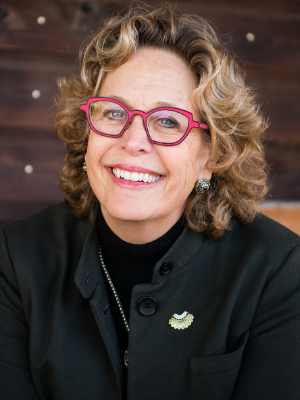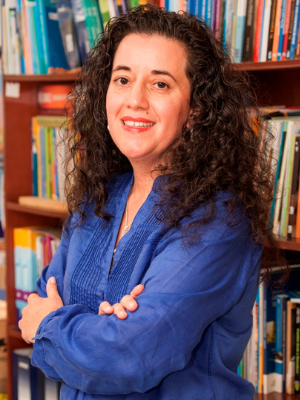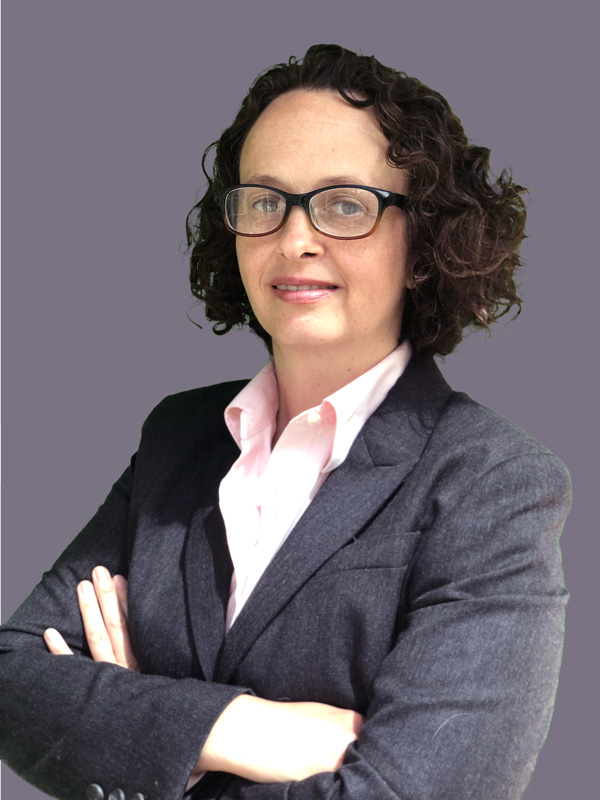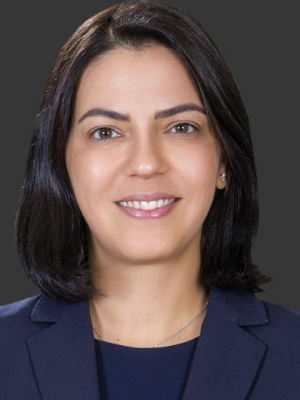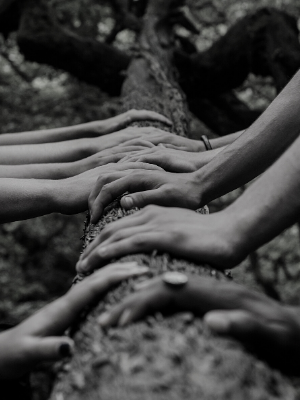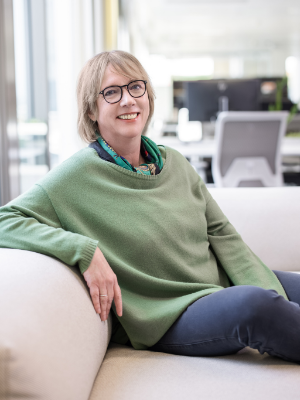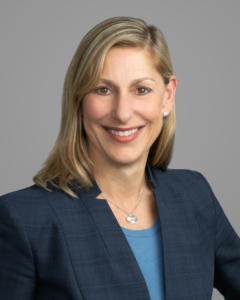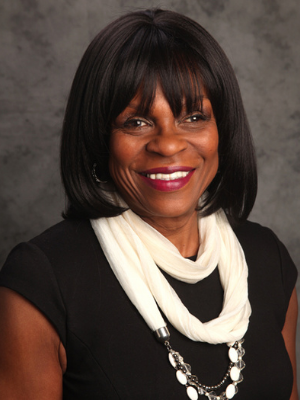 “It doesn’t have to be weighty. We don’t have to solve the problems of the world all of the time, but we do need to take the effort to have conversations that begin to reach out,” says Beverly Jo Slaughter, managing counsel at Wells Fargo Advisors.
“It doesn’t have to be weighty. We don’t have to solve the problems of the world all of the time, but we do need to take the effort to have conversations that begin to reach out,” says Beverly Jo Slaughter, managing counsel at Wells Fargo Advisors.
“I find that when we have an open dialogue, we learn that we are more alike than we are different. It gives us the opportunity to look at the world through somebody else’s eyes—and that’s huge, just huge.”
Match Your Work To Natural Talents
Slaughter’s dream to be a lawyer in a major corporation was so strong that she decided to return to college to earn her juris doctorate degree from Fordham University School of Law during her early forties, just as her kids were beginning to leave the nest.
“I remembered distinctly walking into orientation and looking at people who were not too much older than my own children,” she recalls of being an “alternative student.”
Today, Slaughter heads a team of lawyers and paralegals in the financial services industry, and often reflects on the notion of “never working a day in her life.”
“A big part of job satisfaction is determining what talents and skills you possess naturally,” she observes, “and then how you can fashion that into a career.”
“I like written and oral advocacy. I like advising and advocating for a position whether it’s through, litigation or advising,” Slaughter says. “I enjoy setting out a position and deciding what benefits, advantages and downsides there are, too. I believe that you need to have a nuanced approach.”
While the love of advocacy was present as a paralegal and other positions she held prior to law school, only at Wells Fargo Advisors has Slaughter found the level and breadth of intellectual challenge she craved.
“It’s not only advocacy but also getting your arms around a new problem or an issue and coming to understand it and master it,” she says. “That’s fascinating to me.”
Slaughter is a proponent of heading off conflict before it arises, by being an even better advisor than an advocate.
“I always wanted to be a litigator, but, to me, the best litigator in the world is an advisor,” she discerns. “The other part of my job is to help us avoid litigation and to use those resources to be a better company and to better serve our clients.”
Shape Your Role For Your Fulfillment
“Although I’ve had the same job title since 2008, I have not had the same job,” notes Slaughter. “I’ve been blessed to have the capability to shape my roles in a way that has satisfied me and helped me grow.”
She thrives on getting involved in opportunities where she learns about a new subject matter. One example is taking on a case through which she cultivated an expertise in litigation practices when working with tribal law and tribal court, and developed an understanding of some of the specific issues around financial affairs for tribal people.
“It was my way of going from 0 to 50,” reflects Slaughter. “But it was also my way of enriching my job and continuing to offer better value to the company.”
“I’m a person who believes that you have a great deal of influence and power when it comes to making your job fulfilling for yourself and for increasing your value,” she iterates.
Be A Resource and Advocate For Others
Taking the opportunity to help others realize their worth and navigate their path is her favorite part of leading a team—such as appointing adept paralegals to project management, which showcases the skills they’ve mastered that are very applicable on the business side.
“When you see somebody’s face light up because they found a new skill that they’re good at,” she says, “and they begin to realize the tremendous opportunities that are available to them at a company like Wells Fargo Advisors—that’s a kind of satisfaction like no other to me.”
Slaughter recalls an intriguing piece of advice she received from a mentor decades ago: you will get very far in the world if you are nice.
“I came later to understand what she meant,” says Slaughter. “If you are authentic with people —and interested in their good, in their issues, in the things that are difficult for them—often times you can develop a marvelous work relationship, and you become a go-to person.”
She has found the willingness to be that person of counsel has helped her become someone others come to with issues in confidence and to seek ideas for resolution. It has also positioned her team at the table from the start, having a voice as policies and projects are being crafted, not after decisions are made.
“Quite frankly, that’s who you want to be,” says Slaughter. “You want to be the go-to person who is known as the individual who will get it done and who appreciates the contingencies of the business.”
Be Coachable And Enjoy Your Successes
Along with hard work and helping others, she feels another critical element of success is being coachable and celebrating your value.
“You have to reach out and ask people for help in identifying places you can perhaps get better,” Slaughter notes, “and it takes a great deal of bravery to admit that you can be wrong or less than perfect.”
But being genuinely open to your growth means also being self-aware of your worth and value, and standing in it.
“The biggest thing I think I took away from mentors and coaches over the years was to learn to give a value to myself,” Slaughter reflects. “External recognition is a wonderful thing, but we all have to learn to give recognition to ourselves, to recognize when we have done well, to celebrate our value and feel confident that we bring it to the table.”
She recommends pausing to appreciate what you do well and acknowledge successes because that will carry you through the challenges.
“I think humor is extraordinarily important,” she adds. “The ability to laugh, and sometimes at one’s self, is crucial. Often times that can be a bonding agent. There’s a lot of life that’s really joyful and to be celebrated.”
Brave the Diversity Conversation
Slaughter’s most fulfilling experience came while speaking during a series of company presentations around diversity, equity and inclusion.
In that moment, she crystallized the realization that diversity is difficult, but as a black woman in corporate law, she has been successfully bridging the difficult conversation for her entire career— reaching out to people who appear different than her, or have different backgrounds, in order to build those relationships.
“Diversity, equity and inclusion to me is often times the willingness to recognize your initial communication may not be perfect,” says Slaughter. “But in the end, most people will respond to you in an effort to continue the dialogue.”
“That was a really freeing moment for me,” she says, having been widely thanked by colleagues for reflecting that back.
Slaughter loves reading, crossword puzzles and is passionate about literacy for children and immigrants— the gateway to self-education so you can dream and even overcome disadvantage and adversity.
Growing up in Harlem and passionate about travel, a crowning moment for Slaughter was standing with her husband in front of the pyramids in Egypt and reveling at how much dreams, even when they seem out of reach, can be yours.
Wells Fargo Advisors is a trade name used by Wells Fargo Clearing Services, LLC, Member SIPC, a registered broker-dealer and non-bank affiliate of Wells Fargo & Company.
By Aimee Hansen

